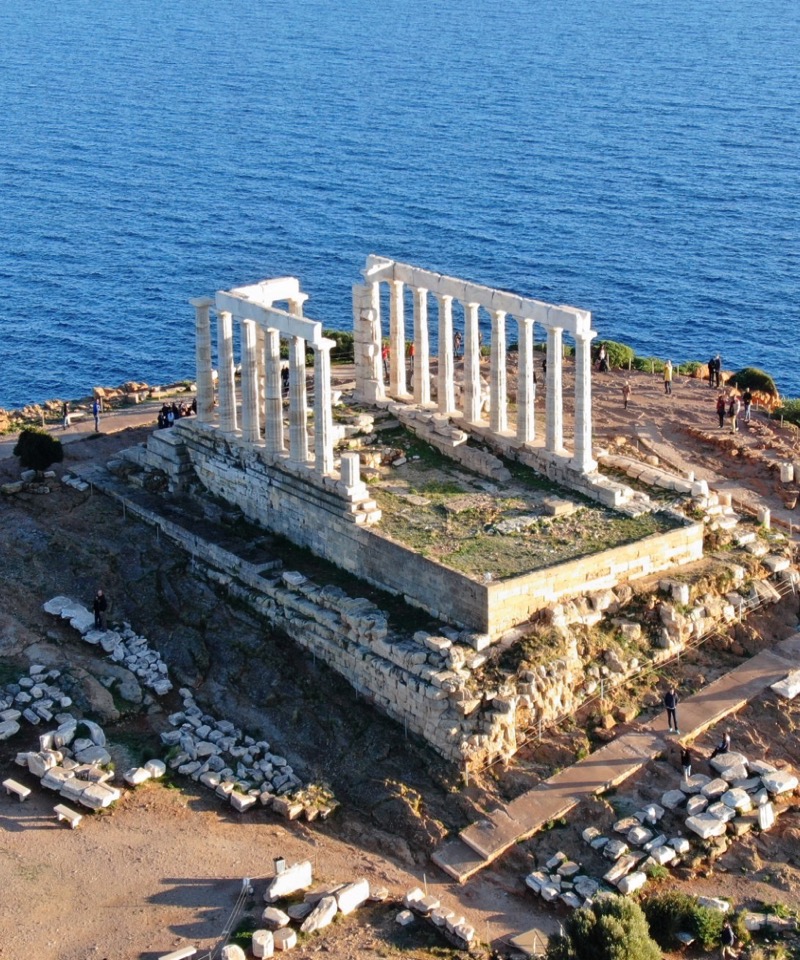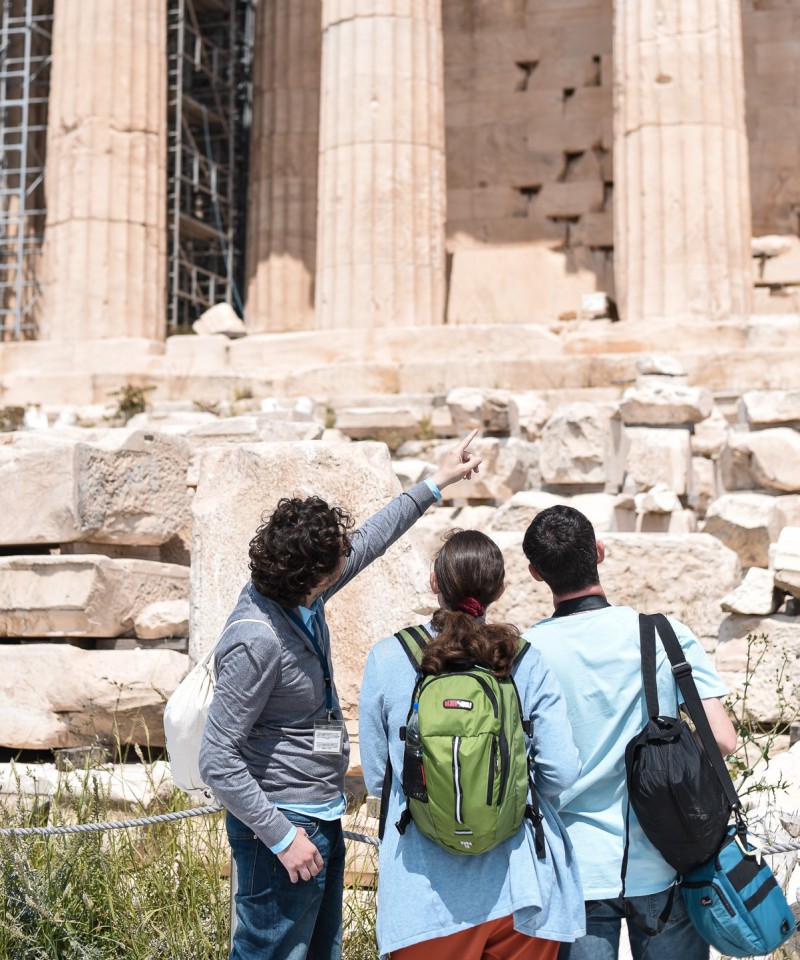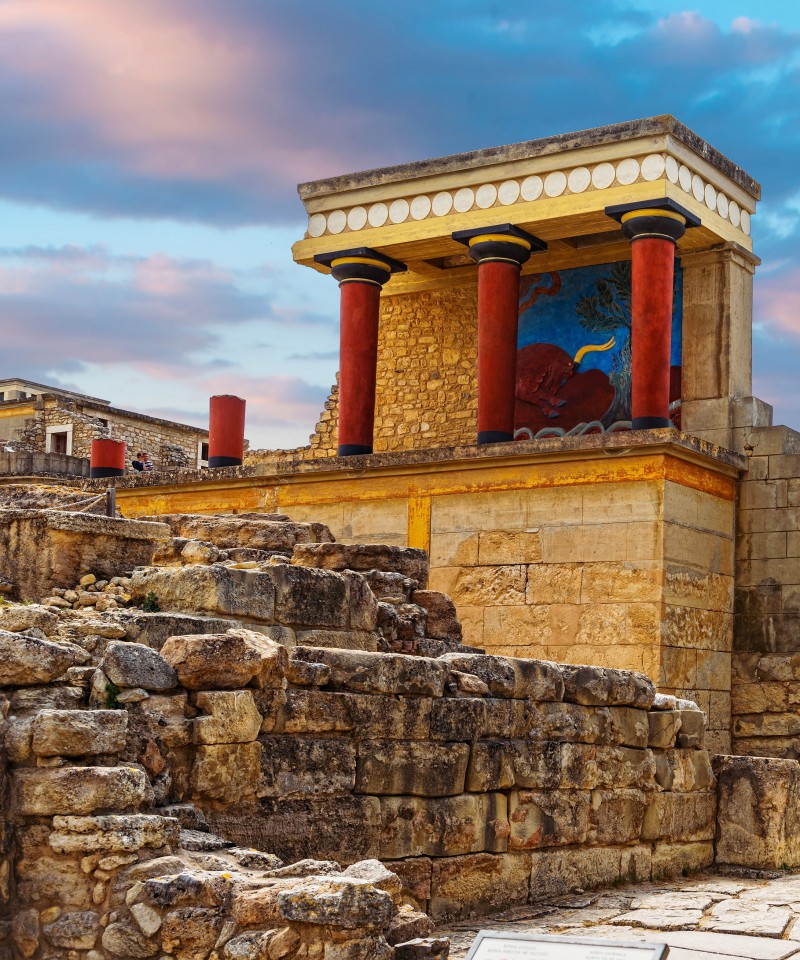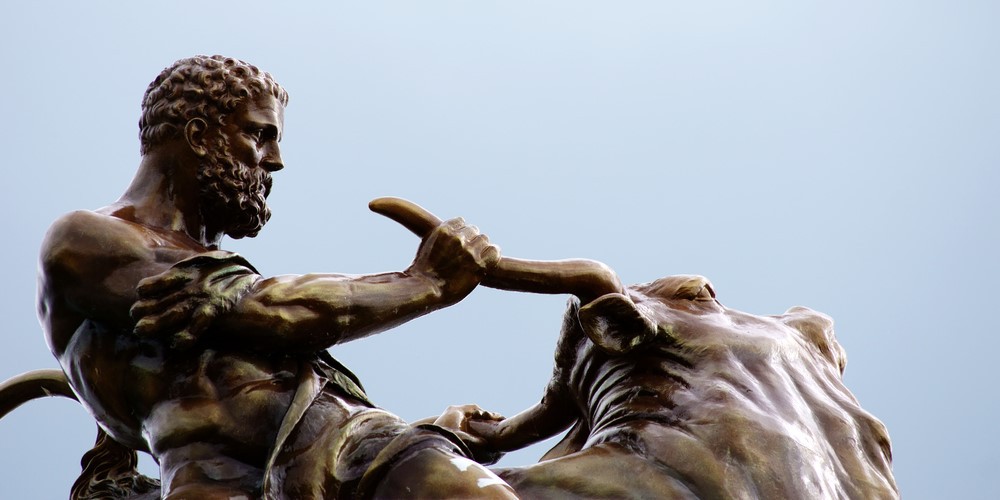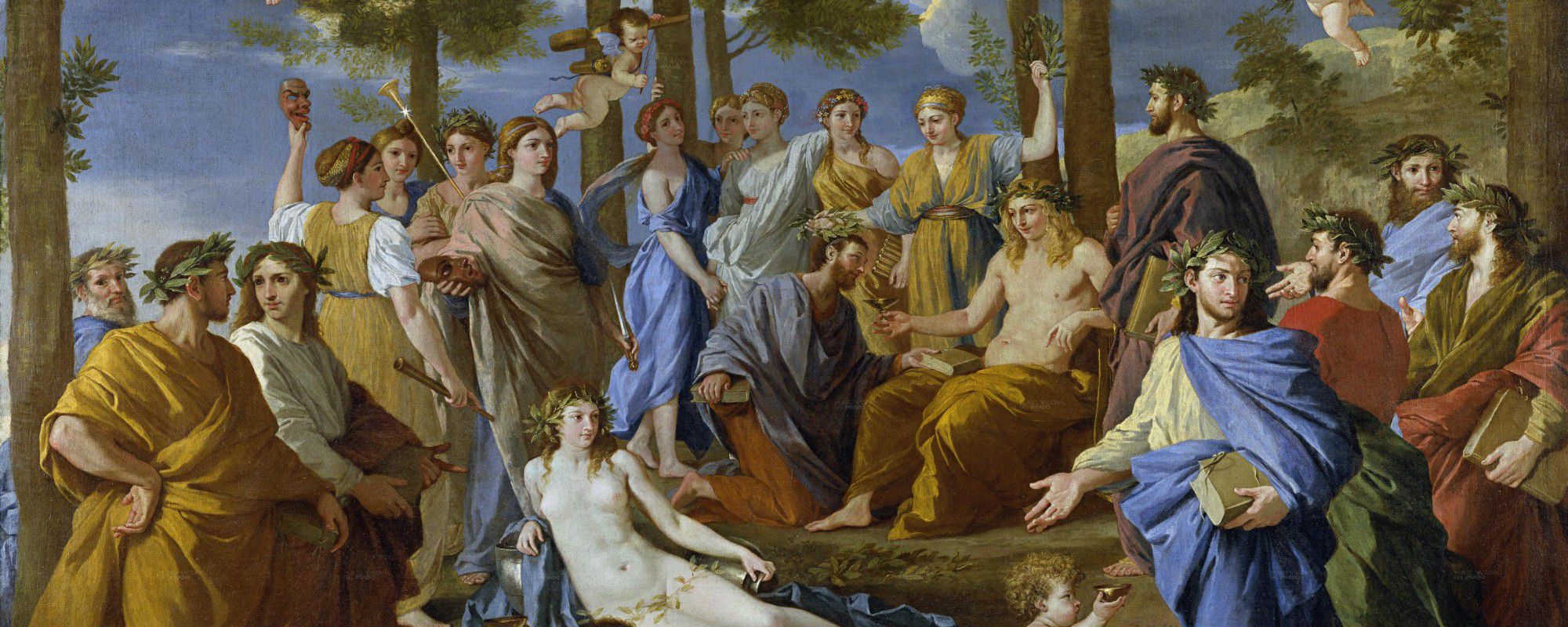
Ancient Greek Mythology: Olympian Gods, Tales & Daily Life Facts
Key Takeaways
- The imaginative ancient Greeks gifted the world with diverse myths to explain life's wonders and natural phenomena.
- Olympian Gods and mortal-immortal conflicts were central themes, surviving through Homer and Hesiod's works.
- Greek mythology evolved over time, adapting to the culture, assimilating pantheons, and reflecting Greek beliefs.
- The epics of Homer and works of Hesiod, along with various literary sources, preserved Greek myths for posterity.
Every time we think of Greek mythology, we think of terrifying creatures and heroic battles. Additionally, images of idealized figures and sometimes perversive stories come to mind. This collection of stories was of pivotal importance for the ancient Greek mindset. It nurtured the development of Greek civilization through the generations.
As the world is aware, apart from being practical and innovative, the minds of the ancient Greeks were incredibly imaginative.
As a result, they gifted the world with fascinating tales. Those tales were an attempt to explain the miracle of life and natural phenomena.
The Olympian Gods hold the leading roles in most of Greek Mythology. Additionally, the battle between mortals and immortals is usually the core of the tales. The majority of classical mythology has survived through the works of Homer and Hesiod.
What is Greek Mythology?
The term 'Greek mythology' covers all the myths related to the Greek tradition, as they are presented through existing literary evidence. 'Greek mythology' is specifically defined as the telling of mythical stories created by the Greeks and concerned with their gods and heroes, the nature of the world, and the ritual practices of their worship.
It consists of a rich collection of stories that refer to the origin of the world and narrate the life and adventures of a wide variety of gods, heroes, heroines, and other mythological creatures.
These stories were initially shaped through oral and poetic tradition before being disseminated in writing through works of Greek literature.
Modern researchers refer to myths and study them to understand their symbolism, the religious and political institutions of the Greeks, and Greek culture in general.
When did Greek Mythology begin?
This question doesn't really have a straightforward answer. It is difficult to know the exact year of birth of Greek mythology, as it is believed to have originated from centuries of oral tradition. It is likely that Greek myths evolved from stories told in the Mycenaean and Minoan sites, the latter of which flourished from about 3000 to 1100 BCE.
History and Origin of Greek Mythology
Mythology has changed over time to adapt to the evolution of Greek culture. The first inhabitants of the Balkan Peninsula, who were agricultural populations, had attributed a spirit to every natural phenomenon. Over time, these vague spirits took human form and became part of mythology as gods and goddesses.
During the descent of tribes from the north came a new divine pantheon based on conquest, strength, bravery in battle, and heroism. Older deities of the agricultural world were assimilated by stronger ones or completely discredited.
Modern scholars attribute interpretations and symbols of our time to Greek myths. theory of the oedipal complex he formulated, the name of the Theban hero.
Others today seek to emphasize the homosexual element in ancient Greece through its myths, believing that in the middle of the archaic period, they gradually began to project relations between gods and heroes, with the parallel development of pedophilia, a term introduced around 630 e.g.
By the end of the 5th century BC, it is believed that some poets had attributed at least one lover to every major god, except Mars, and to many legendary personalities.
Already existing myths, such as that of Achilles and Patroclus, also joined a similar pattern.
The adaptation of the stories of Greek mythology was a common phenomenon, first introduced by the Alexandrian poets and continued after all the writers of the early Roman Empire.
The achievement of epic poetry was to create historical circles and consequently develop a concept of mythological chronology. Although contradictions in the stories make absolute dating impossible, it is almost possible. The mythological history of the world is divided into 3 or 4 broader periods:
- The Age of the Gods or Theogony (birth of the Gods): myths about the origin of the world, the Gods, and the human race.
- The Age of Gods and Men: Stories of Interactions between Gods, Demigods, and Mortals.
- The era of the Heroes, where divine activity is limited.
- The last and greatest of the heroic myths is of the Trojan War (considered by many researchers as a separate fourth period)
Who created Greek mythology?
The stories of Greek mythology were initially shaped through oral and poetic tradition before being disseminated in writing through the works of Greek literature.
The oldest known literary sources are the two epics, the Iliad and the Odyssey of Homer (8th century BC), which are dedicated to the events of the Trojan War and the adventures of Odysseus that followed.
The poetic works of Hesiod (8th century BC) are also considered to be an extremely valuable source of information: Theogony and the Works and Days, which refer to the ancient Greek conception of the creation of the world, the succession of divine rulers, of human times, the origins of human drama and sacrificial practices.
Various myths have also been preserved from Homeric hymns, parts of poems of the epic cycle, lyric poems, works of the tragedy of the 5th century BC, writings of scholars and poets of the Hellenistic period, and texts by writers of Roman times, such as Plutarch and of Pausanias.
The most popular Greek Myths
We have selected some of the most popular and interesting Greek Myths, which you can see below:
Eros and Psyche
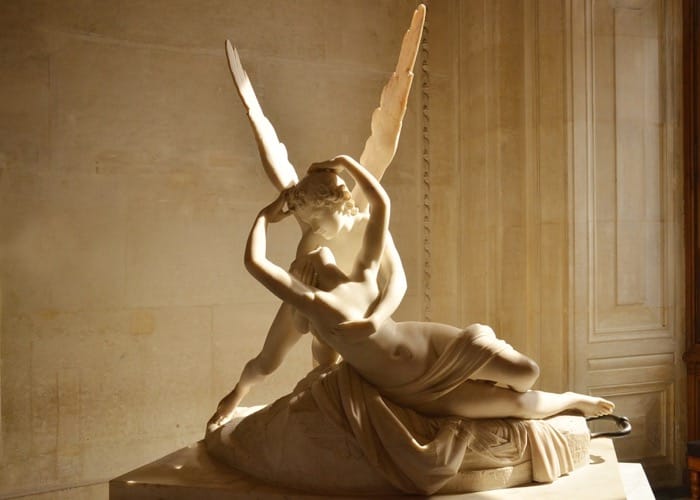
Psyche was the daughter of a royal couple. She had two older sisters, and she was so stunning that she even overshadowed Aphrodite, the goddess of beauty and love.
Men used to lust after her while, during her time, the altars of Aphrodite were being abandoned as they all worshiped the irresistible princess instead of the goddess.
The rejection angered Aphrodite, who ordered her son, Eros, to make Psyche fall in love with the most inferior and least reputable man he could find.
Then, one day, Psyche’s father received an oracle from God Apollo, who instructed him to take Psyche dressed in a bridal dress to a high mountain where he had to wait for the arrival of the groom.
Terrified, he did so, and Psyche was taken to a high mountain until Zephyros, the gentle western wind, picked her up and carried her to a valley, where she fell asleep on the grass.
When she woke up, she discovered a dazzling palace. Psyche entered the palace reluctantly and was welcomed by invisible servants. That night, an unknown man lay beside her on the bed.
Despite Psyche’s fear for her life, the stranger treated her tenderly, though he disappeared before the crack of dawn. From then on, the stranger returned each night. In the meantime, Psyche’s sisters started looking for her.
The stranger warned Psyche that her sisters were approaching and advised her to ignore them. Originally, Psyche agreed to obey his desires but later felt bad for the cruel way she was about to treat her sisters. Eros, who was the secret lover of Psyche, pitied her and allowed her to welcome her sisters, warning her not to disclose his identity.
Psyche welcomed her sisters into her palace, and when one of them insisted on asking for her husband's identity, she simply replied that he was a handsome young man who always spent the day chasing animals. Her sisters got extremely jealous.
Their younger sister was suddenly rich and married an incredibly beautiful man while they ended up with ugly, old, and sick husbands. Eros repeated his warning and then told her she was pregnant.
By using fraudulent tricks, her sisters managed to make Psyche admit that she did not know who her husband was and ask for their help. They advised her, when her husband fell asleep, to bring a candle to his face and see who he was.
Psyche did as she was told and discovered that her husband was Eros himself, with his bow and arrows next to the bed. Curious, Psyche touched one of his arrows and was injured by the edge, making her fall in love with Eros. The candle dripped on the shoulder of the sleeping god, who jumped awake and flew away, angry with Psyche for not keeping her word.
At the last moment, Psyche grabbed his foot and was lifted up in the air with him. When exhaustion forced her to leave him, Eros acknowledged that his arrows had hurt him and therefore had desperately fallen in love with Psyche but flew away, leaving her in the wilderness.
Psyche took revenge on her sisters by driving them to suicide and continued looking for Eros while he lay wounded on his mother's bed.
Desperate, Psyche approached Aphrodite, who tormented the unfortunate Psyche without knowing she was pregnant and gave her a series of impossible tasks to complete, which she did with the help of superior power. By then, Eros had recovered from his injury.
Filled with a lust for Psyche, he escaped from the room where his mother had imprisoned him, found his beloved, and flew to Zeus to ask him to approve his marriage with her. Zeus agreed and announced to Aphrodite that Psyche was about to become a goddess.
He ordered Hermes to bring the girl to Mount Olympus, where the wedding was celebrated with joy. Eros and Psyche remained married and acquired a son, Voloupta (meaning ‘sensual’ in Greek).
Pandora’s Box; Who was the first woman on earth?

Zeus, having received an oracle from Prometheus revealing to him that a child of his born by Thetis would outpower him and steal his throne, decided to punish humankind.
He instructed Hephaestus, the Greek god of blacksmiths, craftsmen, artisans, and volcanoes, among others, to create a woman out of clay and give her a human voice.
Hephaestus worked hard and created a masterpiece. Goddess Athena liked this clay creature, blew life into her, and taught her how to weave and dress. Aphrodite, the goddess of love, made her beautiful. Hermes taught her how to charm and deceive.
Zeus was satisfied when he saw her; he named her Pandora and sent her as a gift to Epimetheus.
Despite Epimetheus having been warned by his brother, Prometheus, that he should never accept gifts from Zeus because there would always be a trap, Epimetheus ignored his brother's warning, fell in love with Pandora, and married her. Zeus, as a gift for their wedding, gave Pandora a beautiful box on the condition that she would never open it.
For a while, Epimetheus and Pandora were very happy. As time passed, however, Pandora became increasingly curious about what was in the box.
She could not understand why someone would send her a box if she could not see what was in it, and one day, defeated by her curiosity, she decided to open it.
She took the key, put it in the lock, turned it around, and carefully opened the lid to take a quick look.
Before realizing what was going on, the room was filled with terrible things: illness, despair, evil, greed, aging, death, hatred, violence, cruelty, and war. Terrified, she closed the lid with force, leaving only the spirit of hope in the box.
The myth of Pandora’s Box is preserved in various versions, with the ones from Hesiod, Aesopus, and Aeschylus being the most popular. According to one variation, probably the oldest one, Zeus had filled the box with real gifts ordering Pandora never to open it.
Curious as she was, Pandora disobeyed Zeus, opened the box, and as a result, all of the good it contained, all the things Zeus had given to the people, except for Hope, flew back to heaven.
Despite its many variants, it is not clear whether Zeus wanted to punish people with what was released from the box or whether the punishment was the woman herself, with many comparing Pandora's box with the apple of Eve.
Theseus and the Minotaur
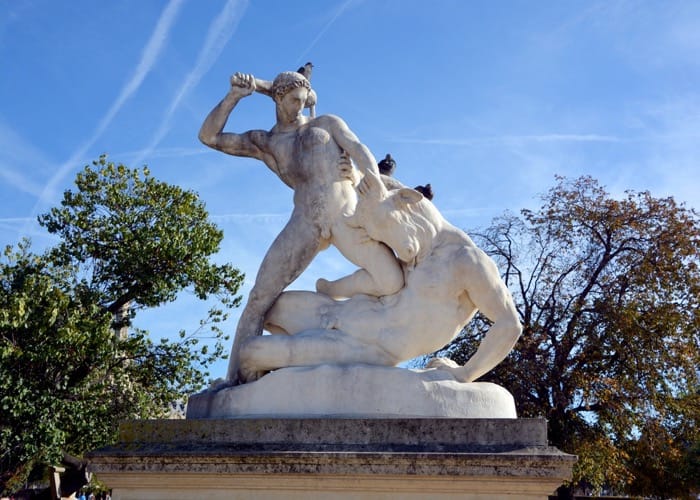
According to Greek Mythology, Minos, King of Crete and son of Zeus and Europa, once asked god Poseidon to give him a sign of whether he or his brother, Rhadamanthus, should take the throne of Knossos from King Asterios. Poseidon sent him a beautiful white bull and asked him to sacrifice it in his honor.
Minos, however, dazzled by the beauty of the animal, decided to mislead Poseidon and sacrifice another bull in its place. Of course, Poseidon realized what had happened and, outraged, made King Minos’ wife, Pasiphae, fall in love with the bull.
Desperate, Pasiphae sought the help of a skillful craftsman and artist, Daedalus, who built a wooden cow dummy, Damalis, covered in true cowhide. Pasiphae entered the dummy and, fooled, the bull mated with her. From this, the famous Minotaur was born, a monster with a human body and a bull’s head that fed on human blood.
When King Minos saw the monster, he asked Daedalus to build a dark building with endless corridors to imprison the Minotaur. Thus, Daedalus constructed the Labyrinth, a complex network in which anyone who entered couldn’t find the way out.
At one point in history, Minos’ son, Androgeus, took part in the Panathenaic Games, where he won several times. Driven by envy, the people of Athens killed the young athlete, and Minos declared war on the Athenians, defeating them with ease.
As a punishment, Minos forced Athenians to send to Crete, every nine years, seven young men and seven young women to be devoured by the Minotaur.
Theseus, son of Aegeus, the king of Athens, did not endure this humiliation and asked that he be one of the seven young men sent to Crete with a special mission; to kill the Minotaur in the dark labyrinth. Upon his arrival, he met with the daughter of Minos, Ariadne, and they both fell in love.
Ariadne then gave Theseus a threaded rope -known as Ariadne's thread- and advised him to tie its end to the entrance of the labyrinth and unroll it as he moves inside the labyrinth so that, when he killed the Minotaur, he could find the exit.
Theseus entered the dark arcades holding the thread and managed to kill the Minotaur by cutting his head, thus giving a definitive end to Minos’ cruelty. Then, he managed to return to the exit, following the thread.
Theseus took Ariadne with him, and, along with the rest of the Athenians, they began the trip back home. They made a stop at Naxos, where god Dionysus appeared in Theseus’ dream and told him that they had to leave the island without Ariadne since she was meant to stay there and become his wife.
Ariadne stayed in Naxos, married Dionysus, and was later brought to Mount Olympus to become immortal.
When the rest of the Athenians sailed to Athens, they forgot to change the black sails on their ships, symbolizing the mourning for the loss of young people.
When Aegeas saw the black sails, thinking that Theseus was killed, he fell from the cliffs of Cape Sounio, giving the sea in which he drowned the name it holds to this day: the Aegean Sea.
Tip: discover more of Crete’s fascinating history and mythology with a Knossos Palace And Archaeological Museum Tour that will show you around one of the most fascinating landmarks in Greece!
Greek Mythology is an integral part of Greek culture, even today. It has exceedingly influenced Western civilization, its philosophy, history, politics, art, and literature, while poets and artists from across the world have derived inspiration from it.
Don’t skip on learning the deepest secrets of antiquity and the hundreds of myths to be found under every rock you turn.
If you’re visiting Greece with your kids, treat them to a captivating adventure that will unveil the gems of Greek mythology through our various Greece tours, such as the Percy Jackson tours, where they will get the chance to trace Percy Jackson’s footsteps and witness the famous book come to life! Of course, for more inspiration, you can always browse our Greece Vacation Packages as well.
The Greek myth of Alcyone and the Halcyon Days
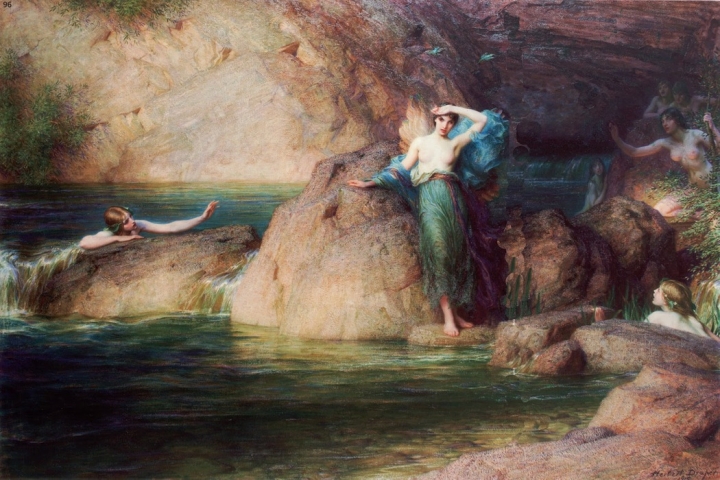
It is known that Halcyon days refer to the warm days during winter time, but only a few people have heard of the myth of Alcyone – the myth behind the Halcyon days, which is part of the fascinating world of Greek mythology and reminds us that there is always enough space for good vibes in our lives, even during the toughest of times.
According to Greek Mythology, Alcyone was the daughter of Aeolus, the God of Wind, and used to live with her husband Ceyx, at the seaside.
Alcyone and Ceyx were so happy and in love with each other that they drew a parallel between them and the couple of Zeus and Hera, calling each other the gods' names.
This comparison proved to be an imprudent idea, and it was perceived as an act of disrespect towards the father of Gods, Zeus, who got furious with the couple and transformed Ceyx into a vulture.
Alcyone, without knowing about the transformation, started searching for her husband and not being able to find him; she got tired, bitterly disappointed, and a little mad.

The Olympians felt sorry for her and decided to transform her into a bird as well. Alcyone –known as Alkyona bird from that moment on- started looking desperately for her husband in the sea, but her sorrow didn't end there; in spite of the fact that most birds lay eggs during spring or summertime, Alkyona was condemned to lay eggs during the cold days of winter.
This caused severely distressing experiences for Alkyona once more, with the raging sea waves hitting her nest and taking some of the eggs away from her, causing her to break down.
So much was her sorrow that the gods of Olympus decided to show mercy to her, and Zeus ordered that the wind is ceased. The weather gets warm and sunny for 15 days every January, thus, giving Alkyona enough time to lay and hatch her eggs, feed her small birds, and then let them fly strong and independently in the eternal blue sky.

Halcyon days are a message of optimism and positive thinking to the world, reminding us that there is nothing permanent and nothing obvious in this life; there are bad and good things, sunny and rainy days, and they all come and go, revealing a world full of wonders; the greatest of which is life itself.
Myths are an integral part of Greek culture. If you want to feel enchanted by the wisdom hidden in Greek myths and the cultural impact they had on the development of human thought, indulge in a mythological walking tour of Athens and get introduced to the city of Athens through the captivating tales of Greek mythology.
The naming of Athens city in ancient Greece
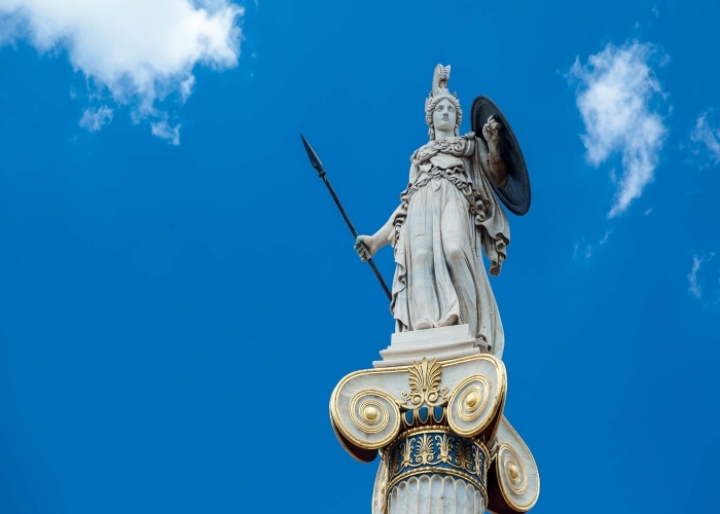
Athens is the capital of Greece, a beautiful city full of history and culture, but have you ever wondered where its name comes from?
The ancient city is named after the goddess Athena and the story of its origin, like many others in Greek Mythology, is one of intrigue and grandeur, and it begins the way all great tales do.
Once upon a time, according to the myth, there was a king named Cecrops. Although he was a human, his body had a serpent's tail above the waist. However, that didn't stop him from being the ruler of a very beautiful city beloved by all of its residents. The original name of the city was ‘Coast’ or ‘Aktiki,’ named after the very first king of the lands, King Aktaion.
During his rule, King Cecrops, wishing to find a better name for the city worthy of its beauty and grace, called upon the twelve gods of Olympus and asked who would wish to become the patron and protector of his city. Of the twelve gods, two of them came forward as willing candidates: Athena and Poseidon.
Now that was a proper challenge! Athena was the goddess of wisdom, war, and crafts, while Poseidon was the god of the sea, storms, horses, and earthquakes. Neither of them was willing to back down, so in an unusual reversal of power, it was the mortal King Cecrops who decided that the gods should compete against each other so the victor could become the patron of the city.
In this contest of Athena vs. Poseidon, it was determined that each god should offer their best gift, and the king, the people of the city, and the remaining gods, would decide which was more impressive.
Both gods were summoned to the Acropolis to present their gifts. First came Poseidon. Striking the ground with his trident, the rock ruptured, and saltwater came gushing out of the ground until a small lake had formed.
Being a seafaring nation, he was certain the mortals would wish to have a god who could command the ocean as their protector.
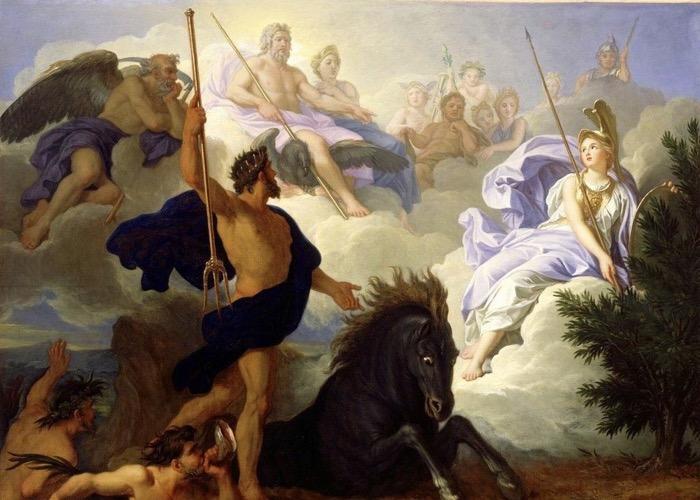
The wise Athena was not daunted. She planted the seedling of an olive tree on the rock, which immediately grew and bore olives, enough to feed all the people of the city.
Watching the contest, Zeus -king of the twelve gods of Olympus- asked the other gods to judge which gift was best.
Cecrops, in turn, addressed his people, who began to shout, "olive!". As he considered the gifts and his people's desires, he favored Athena's offering, as he believed it would prove to be the most precious of the two for the city.
Thus, the king and the people of Athens pronounced the winner and the new patron goddess of the city, with the city being duly named Athens or ‘Αθηνα’ in Greek, in her honor.
Also, Athens' sacred symbol became the olive tree that the patron goddess gifted. It was so much appreciated their currency depicted the goddess Athena with an olive wreath on her helmet.
The people of Athens loved the goddess of their city so much, as well as everything she offered them, that they later built temples in her favor. The world-famous Parthenon is a temple dedicated to and named after her.
The tree gifted by Athena is said to have survived for many years. In 480 BC, when the Persians under the rule of Xerxes attacked Athens, they burned the sacred olive tree as a sign of dominance.
The Athenians were devastated, but the very next day, the dry and burnt trunk of their beloved olive tree began to rejuvenate. This was taken as a foretelling that Athens would once again stand tall and as a sign of their resilience, even in the face of adversity.
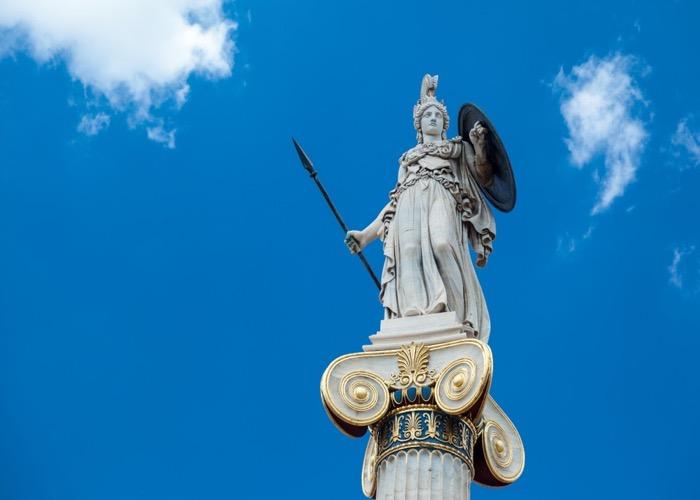
Legend has it that seeds from the sacred tree in Athens were then planted across Attica and that the olive trees that surround the city of Athens are its descendants, which continue to ensure the success of olive cultivation to this day; a symbol of Athena's enduring gift.
An olive tree can, in fact, still be seen today at the top of the Acropolis.
This, however, is not the original one from the myth in its ancient form that has also made an appearance in various other mythological scenes. Instead, it was planted in 1952 with a surviving branch from the tree that was all but destroyed during the German invasion during the Second World War.
As you can imagine, the olive tree continues to be an important symbol of Athens to this day.
Demeter, the Lady of Eleusis
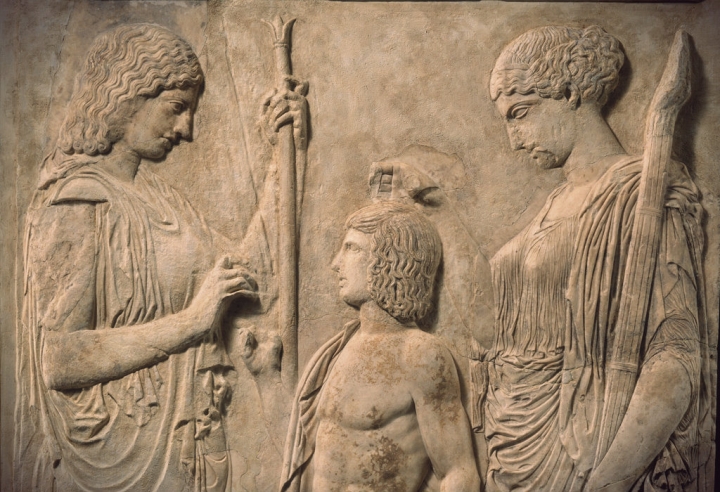
Demeter - which literally translates to 'Mother Earth'- is one of the most ancient deities of the Greek pantheon. Dearly loved by Greeks, Demeter was commonly thought to be a benevolent deity, tending to the people's needs, but with her dark side too when challenged.
Many of the earliest Greek myths and legends orbit around the figure of Demeter, often symbolizing different qualities of nature. One of them is the moving story of Demeter and her beloved daughter Persephone.
Demeter was the goddess of grain, agriculture, and fertility. She was the older sister of Zeus, one of his released siblings from Cronus' belly. She immediately stood by Zeus' side and fought with him against the Titans.
Demeter was principally a mother deity of the Greek world. One of her children was Persephone - also referred to as Kore- which proved to be her dearest one but also the one who broke her heart.
Demeter and Kore used to be inseparable in life and in worship, with their most prominent cult being established at the sanctuary of Eleusis.
According to Pausanias, Eleusis' sanctuary and its festival were so significant to Greek religious practice that could only be compared to the Olympic Games, hosted in the region of Olympia.
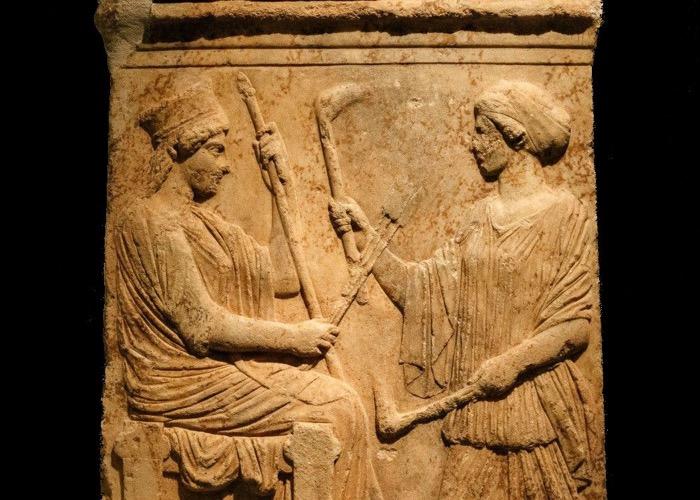
Demeter was overprotective towards her daughter, always trying to keep her safe, especially from the male gods. One day, Persephone was relaxing in the company of the water Nymphs known as Oceanids, on the plains of Nysa.
Persephone was a young woman of dazzling beauty; therefore, Hades, the lord of the Underworld, could not help but notice it. He fell madly in love with young Persephone and decided to make her his wife at any cost.
On the fields of Nysa, he made a wonderful flower to blossom, so beautiful that no one could resist it. By the time Persephone saw the flower, she got so amazed by its beauty that she inadvertently tried to touch it.
Then, a chasm on the surface of the earth opened, and through it, Hades riding his golden chariot with his immortal horses, grabbed the terrified Persephone, leading her to the Underworld.
The scream of Persephone echoed around the world. Demeter, shocked, immediately set out to find her daughter. She wrapped a black shawl around her shoulders, and just like a hawk she searched everywhere for poor Persephone. She asked everyone she met, mortal or god, whether they knew anything about the fate of her daughter.
Unfortunately, no one wanted to betray the mighty god Hades. Only Hecate, the three-faced goddess of magic, and sorcery stood by her side and informed her that Hades had something to do with Persephone's disappearance.
Together, they asked the Sun who confirmed their fears. Desperate, she mourned for her daughter, believing that she had perished for good. Her mourning was so intense that she left her palace on mount Olympus and stopped tending to the earth and providing goods to the people.
The crops died, the lands became barren and nothing could grow out of the earth. Famine fell upon the world and the human race came close to extinction.
Watching the disaster provoked by the absence of Demeter, Zeus sent Hermes -other versions of the Greek myth present Pan instead of Hermes- to find her and persuade her to return to Olympus. In the meantime, Zeus asked Hades to release Persephone and allow her to ascend to the Upper World.
Hades, not being able to oppose the wish of his brother, allowed Persephone to go and reunite with her mother but just before she left, he gave her some pomegranate seeds to eat. Little did Persephone know that once you eat something in the Underworld you can never fully escape from it.
She was eventually reunited with her mother and order was re-established in the world. Unfortunately, due to the consumption of those pomegranate seeds, Persephone had to return for a certain period of the year in the Underworld, to her husband Hades.
This Greek myth has been interpreted in many different ways but the most apparent symbolism is the concept of earth's fertility and the interchange of seasons.
This story operated as the epicenter of the mystical Eleusinian festival held at the sanctuary of Demeter and Kore at Eleusis, in the eastern part of Attica. The worshippers of the festival had to be initiated in order to participate in the events.
During that ritual, they had to take an oath not to reveal the events of the Mysteries (festival) to the non-initiated. The penalty for the violators was death.
The festival known as Eleusinian Mysteries was pivotal to Greek culture and many important figures of the ancient world became mystes (the initiated ones) such as Aeschylus, the Athenian playwright, and Hadrian, the Roman Emperor, among others.
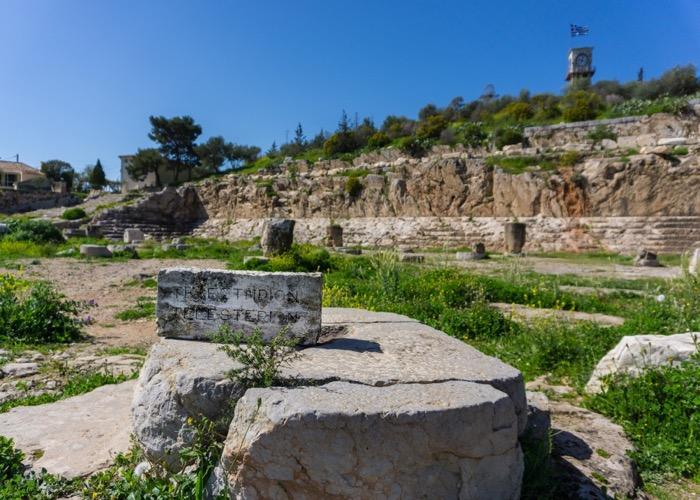
The story of Demeter and Kore is ancient and timeless capable of moving people to tears even today!
The sanctuary of Eleusis, with the sacred Telesterion and its impressive ruins, helps the visitor immerse into the ancient world and experience this mystical part of antiquity. Therefore, a visit to Eleusis is a must for every visitor to Athens!
Oedipus Rex, the Greatest Greek Tragedy
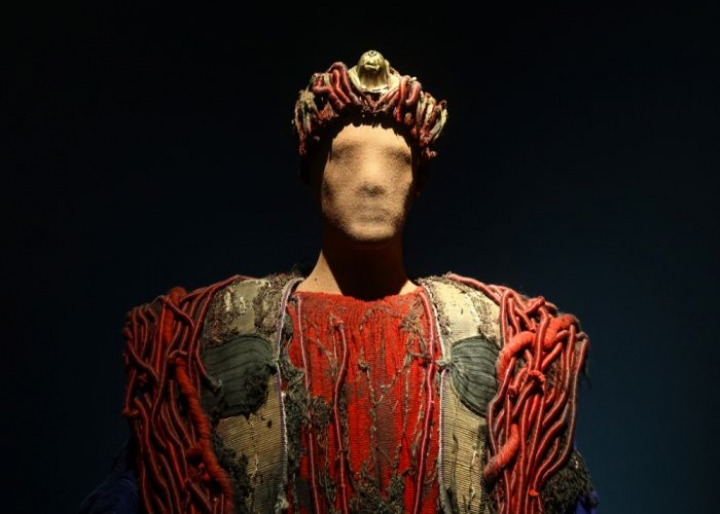
If you decide to visit Greece, the birthplace of Drama and Theater, there is no escaping the rich heritage and culture evident in every corner of the country.
The bright sun and stunning beaches may be a worthwhile temptation, but they don’t take away from the fact that in order for you to truly submerge yourself into Greek tradition, you need to also appreciate its history and cultural incentives.
A big part of Greek tradition, if not the biggest, is Greek mythology, arguably, the cornerstone of the art of story-telling since ancient times.
Don’t miss the chance to dive into the fascinating world of Greek mythology by enjoying at least one ancient drama play during your stay; we promise that by the end of this experience, you’ll be thoroughly entertained and nothing short of rich in memories and knowledge!
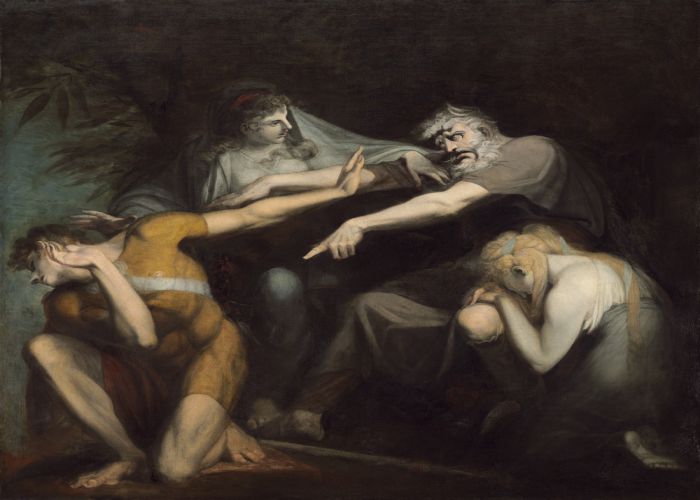
One of the most controversial pieces of Greek literature that continue to be a topic of analysis and discussion to this day, almost 2,500 after its birth, is Oedipus Rex.
Oedipus Rex was written by the famous Greek tragedian Sophocles, while the date of the writing remains unknown.
The play tells the famous story of Oedipus, who ends up murdering his father and marrying his own mother, fully unaware of the tragic circumstances, proving true an oracle that was given to his father shortly after Oedipus was born.
Oedipus Rex is often considered the greatest Greek tragedy, encapsulating all Greek tragedy elements masterfully; it has a likable protagonist, a sharp climax, expressive, rhythmic literary work, as well as a plethron of meaningful themes; it is without a doubt a drama that has stood the test of time!
Greek Mythology in our daily life
By developing, adapting, and thus evolving through the centuries, and the expanse of Greek culture by the conquest of Alexander the Great and Rome’s Greek affiliation, Greek mythology managed to break the chains of locality and became a universal heritage of humankind.
Its power and attraction are evident through the findings that have surfaced, with scenes from Greek Mythology being found on mosaics, depicted as marble statues, and decorating the vessels of everyday life.
Today, we think of these ancient stories as either dead remnants of the ancient world or themes for box-office action movies.
Is that, however, the extent to which Greek mythology has affected the modern world? How often are we surrounded by those stories during our day and refer to them inadvertently?
Here, we present you with some examples that will help you realize what a big part of your life Greek Mythology really is.
Get hypnotized
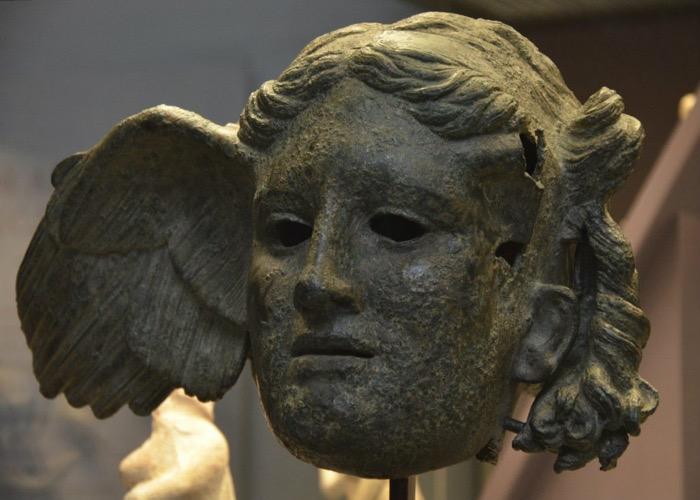
Hypnosis, hypnotherapy, hypnotize, hypnopompia, etc. are words directly associated with Hypnos, the god of sleep. During Roman times, he was known as Somnus (e.g., insomnia). According to mythology, Hypnos was the son of Nyx (the night) and Erebus (the darkness), always close to his twin brother Thanatos (death).
He was thought to be a benevolent deity that controlled half of the people’s lives. Homer reveals that the entrance to the Underworld, where he lived, could be found on the island of Lemnos, in the northern part of modern Greece.
The entrance of his cave is said to be filled with poppies and other hypnotic plants watered from the river of Lethe (forgetfulness). The sunlight never showers his cave, and the concept of sound is unknown in his territory. He was a god of great power, even among the rest of the Olympians.
With Pasithea, the youngest of the Graces (goddess of relaxation and hallucination), he had his three sons Morpheus (meaning Shape), the god that can intrude and take human form in dreams, Phobetor, the one responsible for nightmares and Phantasos, the maker of illusions and hallucinations.
Hypnos is found in many ancient myths of the Greeks, with the most famous one found in Homer’s Iliad. During the battles of Troy’s siege, Patroclus, the dearest friend of Achilles and the son of the Argonaut Menoetius, encountered the son of Zeus, Sarpedon.
When he witnessed Patroclus being on a rampage, slaying one Trojan after the other, he stood against him.
The two men started fighting with every means they had, with Zeus closely observing the situation, anxious about the fate of his son. At one point, he tried to interfere, only to be stopped by Hera, who reminded him that his actions might provoke terrible consequences.
With a final blow, Patroclus hit Sarpedon on his chest, killing him on site. Before he died, though, he begged Glaucus to protect his body from the Greeks. The armies of the Greeks and Trojans engaged in a battle around the fully-armored dead body of Sarpedon.
The battle ended with the victory of the Greeks and the order of Patroclus to take the armor of Sarpedon.
Then, Zeus covered the naked body of Sarpedon with darkness and sent Apollo to retrieve it, clean it from blood and dust, cover it with ointments and perfume, and give it to Hypnos and Thanatos to:
”...carry him away, until they come with him to the countryside of broad Lykia (Lycia) where his brothers and countrymen shall give him due to burial with tomb and gravestone.”
To tantalize
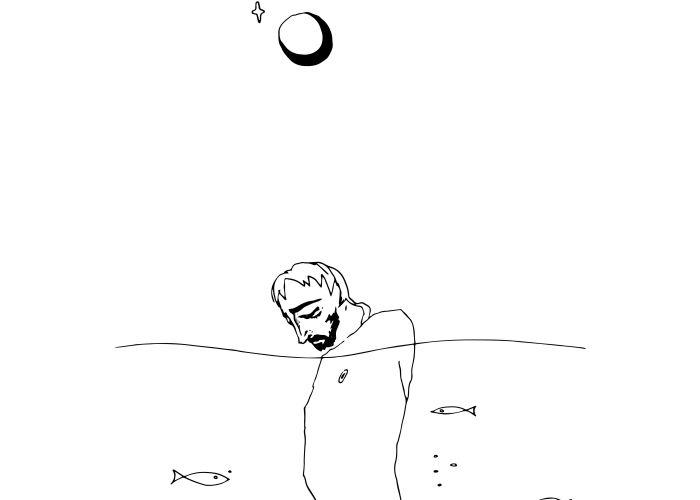
According to Oxford Dictionaries, the definition of the verb to tantalize is: to torment or to tease (someone) with the sight or promise of something that is unobtainable.
The origin of that word comes from the horrifying story of the king of Phrygia Tantalus, the son of Zeus and Pluto. By being the son of two major deities, Tantalus was thought to be equal to the rest of the Olympians.
Having his mind clouded by vanity and greed, he stole ambrosia and nectar, the food and drink of the gods, granting immortality to anyone he wanted. He even went a step further, claiming that the gods could easily be manipulated and deceived. In order to prove his point, he committed a hideous crime.
He murdered his son Pelops, cut him into pieces, cooked him, and offered him as food to the gods.
The Olympians (except for Demeter, who, distracted by the loss of her daughter, was deceived) quickly realized the sacrilege of Tantalus and repulsed by his action, they decided to punish him in the most brutal way possible.
Zeus struck him immediately with his bolts of lightning, and his soul was led to the deepest level of the Underworld, Tartarus.
There the gods let his soul retain its earthly needs and put him in a pool of water beneath a fruit tree with low branches.
Whenever he reached for the fruit, the branches raised his intended meal from his grasp. Whenever he bent down to get a drink, the water receded before he could get any.
After Tantalus’ punishment, the gods resurrected Pelops as a youthful young man, and Poseidon took him under his protection.
The story of Tantalus is one of the most brutal stories in Greek mythology. The famous artist of antiquity, Polygnotus, depicted Tantalus' punishment in one of his paintings.
Enchanted by the color of your eyes
One of the most charming features of a person is the iris of their eyes. Different cultures around the globe rendered the iris of the eye into the window to a person’s soul, while in olden times, practitioners used to examine them to reveal the future of someone’s life.
The iris took its name from the Greek deity Iris, the daughter of Thaumas and Oceanid Electra. She was the messenger of the gods, just like Hermes, and had a set of golden wings on her back. Iris was always carrying an ewer filled with water from the River Styx, which she used to put to sleep the people that had committed the crime of perjury.
According to the Greeks, the rainbow was the only visible sign of the goddess when traveling from one place to another. An obedient follower of Hera, she is often mentioned by Homer in his work Iliad. A passage describes an event between Aphrodite and Iris:
“She mounted the chariot, and beside her entering, Iris gathered the reins up and whipped them into a run, and they winged their way unreluctant. Now as they came to sheer Olympos, the place of the immortals, there swift Iris, the wind-footed, reined in her horses and slipped them from the yoke and threw fodder immortal before them.”
Pour some milk on my cereal

By the time we wake up every day, one of our first impulses is to grab a bowl and fill it with cereal for breakfast. The word 'cereal' derives from the name of the Roman deity Ceres, who is the equivalent of the dearly loved mother deity of Demeter.
According to Greek mythology, Demeter is the older sister of Zeus and the goddess of prosperity, grain, agriculture, harvest, growth, and nourishment.
The Greek myth says that after the sudden and cruel abduction of Demeter's daughter, Persephone, by the almighty god of the underworld, Hades, Demeter fell into depression, neglecting her obligations to the land and leading humankind into starvation.
In one of her journeys seeking her lost daughter, she reached the lands of Eleusis, transformed herself into an old lady, and found refuge at the court of King Celeus. There she felt so welcomed and loved that she became the nanny of Celeus' sons, Triptolemus and Demophon.
As a reward, she secretly tried to make Demophon immortal by anointing the infant with divine ambrosia and laying him in the flames of her hearth. Before the completion of her ritual, the mother of the young boys, Metanira, stormed into the chambers of the goddess and saw her child in the flames.
Terrified by the sight, she screamed and rushed to protect Demophon putting an end to the ritual before the completion of his immortality. Demeter, though, taught Triptolemus the craft of agriculture, granting that way to cultivate cereal and every kind of crop to humankind.
Next time you will enjoy your bowl of cereal, take some time to remember this priceless gift of Demeter to the world!
Don't panic!
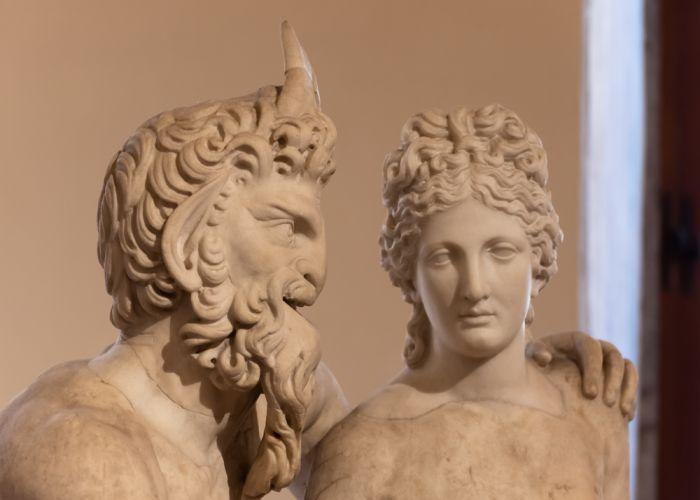
According to Oxford dictionaries, panic is the 'sudden uncontrollable fear or anxiety, often causing wildly unthinking behavior.'
According to Greek mythology, the god responsible for this emotion is Pan (Pan-ic), a secondary but greatly respected deity of the Greek pantheon, representing the forces of nature and the wild, protector of shepherds and flocks, and companion of the Nymphs.
Son of Hermes and Dryope, Pan had a human form with goat-like legs and horns crowning his head. One of his great powers was his terrifying and ominous roar that provoked the emotion of panic in anyone hearing it.
The Athenians paid great respect to Pan because they believed that he imbued panic in the hearts of the Persians and helped them win the battle of Marathon.
Many sanctuaries honoring the god were founded in Attica after the battle, and just below the Acropolis, a cave was dedicated to the fearless god Pan.
Greek Mythology books
The intricate and wildly imaginative world of Greek Mythology has been a source of inspiration for writers all around the world. There are books that explain the tales of Greek Mythology and books that, stimulated by it, narrate modern adventures.
Among our top picks for the most ‘serious’ Greek Mythology books are Mythology: Timeless Tales of Gods and Heroes by Edith Hamilton, The Complete World of Greek Mythology by Richard Buxton, D’Aulaires’ Book of Greek Myths by Ingri and Edgar Parin d’Aulaire, The Iliad by Homer, translated by Robert Fagles, The Odyssey by Homer, translated by Robert Fagles, Theogony by Hesiod, translated by M.L. West, The Library of Greek Mythology by Apollodorus, translated by Robin Hard, The Penguin Dictionary of Classical Mythology by Pierre Grimal, and Myth and Philosophy: A Contest of Truths by Lawrence J. Hatab.
Apart from the grown-up books, however, there are many children's books that reference or are centered around Greek Mythology. Such an example is the famous Rick Riordan's Percy Jackson and the Olympians series.
These books follow Percy Jackson, a demigod and a son of Poseidon, on his adventures. Through his life, the reader gets a grasp of the intricate connection between characters and stories of Greek Mythology, understanding, at the same time, age-old Greek life and culture.
The Greek Gods
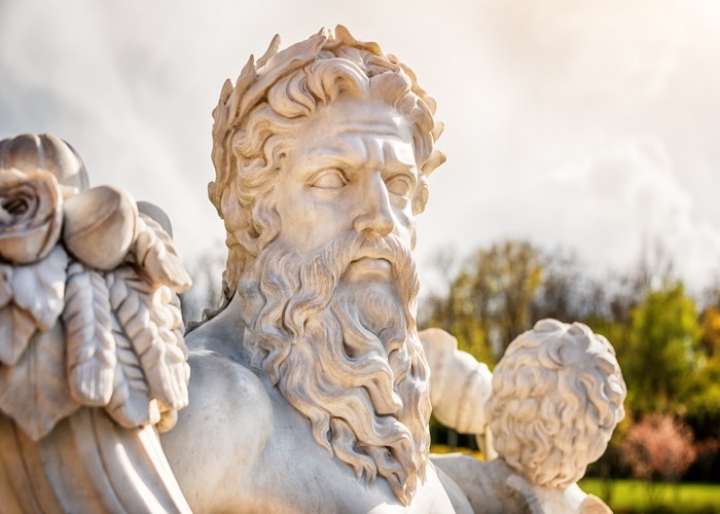
If we go back several centuries, we will be dazzled by the plethora of myths that are recorded in Greek mythology. The Greeks, from the depths of history, tried to explain natural phenomena by creating stories, thus creating a rich mythological tradition.
Here, you will learn all about the Olympians, which will give you an insight into ancient and modern Greek culture.
How many Greek gods are there?
Although this is often misconceived, the gods of Olympus were twelve -six men and 6 women. Namely, there were Zeus, Poseidon, Apollo, Hephaestus, Mars, Hermes, Hera, Athena, Aphrodite, Artemis, Demeter, and Estia.
The Gods and Goddesses
The Olympian gods gained power by defeating the Titans in the Battle of Titans.
In fact, the Greeks did not have a specific twelve gods, but there were big and smaller gods and others that were worshiped locally, e.g., Zeus, Poseidon, and Hades were the greatest gods, while Dionysus was the lesser god.
The twelve gods is a concept formed by Western scholars in the 16th-17th century and has appeared in various compositions among 14 gods.
Zeus
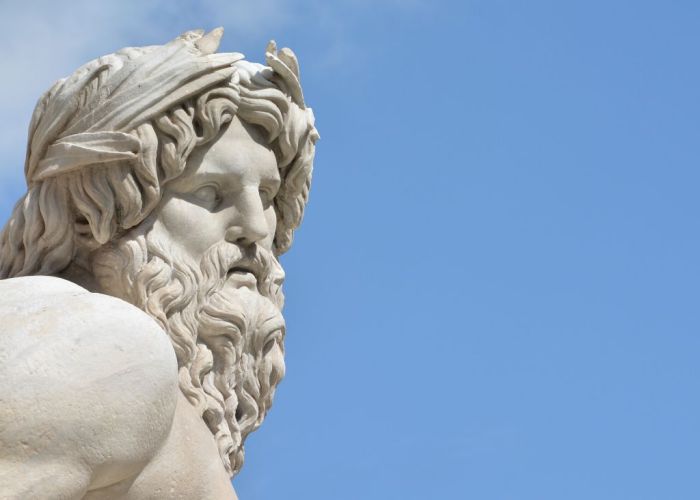
According to the Greek theogony, Zeus was the ‘father of gods and men’ who ruled the gods of Olympus. He was the god of the sky and lightning in Greek mythology. He was the youngest child of Saturn and Rhea.
He was married to Hera, but he was known for his love affairs. This led to many pious and heroic descendants, including Athena, Apollo, Artemis, Hermes, Persephone, Dionysus, Perseus, Hercules, Helen of Troy, Minos, and the Muses.
From Hera, he acquired Ares, Ibi, and Hephaestus, while from Dioni, he acquired Aphrodite. He was the strongest and most important of all mythological beings. In the Homeric epic of the Iliad, Zeus sent lightning bolts to his enemies. His other emblems were the eagle and the goat.
Hera
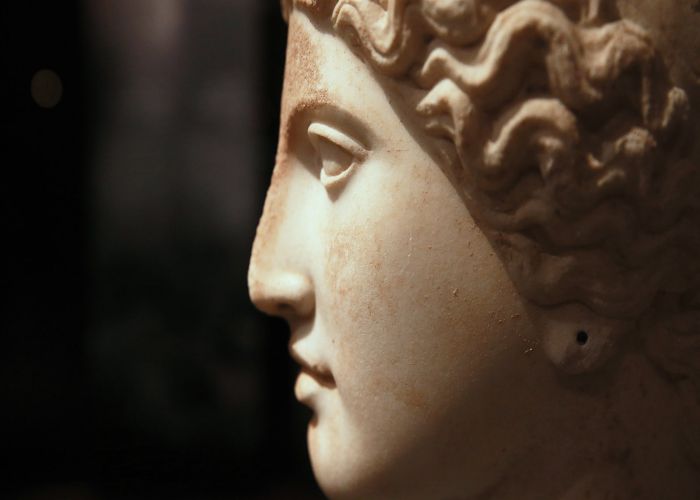
In Greek mythology, Hera was the wife of Zeus, the daughter of Saturn and Rhea. She was the goddess of marriage. Always jealous of Zeus' husband for his infidelities, many times she took revenge on the women with whom Zeus cheated on her.
The birth of the queen of the gods has been placed in many regions of Greece. Some of them are Samos or Stymfalia or Evia. Legend has it that when she was born, Saturn swallowed Hera along with her siblings, trying to fight his fate, as Gaia and Uranus had prophesied to him that one of his descendants would claim his power.
Only when Rhea managed to deceive Saturn did Hera see the light again.
After Saturn was dethroned, Zeus proposed to her. Crazy with love for his sister, Zeus did not give up. One day, as the goddess was walking in the forest, Zeus transformed into a cuckoo and fell at her feet.
Then, the king of the gods took his true form. Imposing and powerful, he made the goddess fall in love with him. From the marriage of Hera and Zeus, Ares, Ivi, and Eilithia were born.
According to Homer, Hephaestus was also born, while according to Hesiod, Hera gave birth to Hephaestus alone, without the participation of Zeus. Hera was often described or depicted holding a scepter as a symbol of domination or holding a pomegranate -the symbol of fertility- in her hands.
Other well-known symbols of Hera were the peacock, the cuckoo that symbolized the coming of spring, and various flowers and plants that symbolized the blessing of nature.
Poseidon
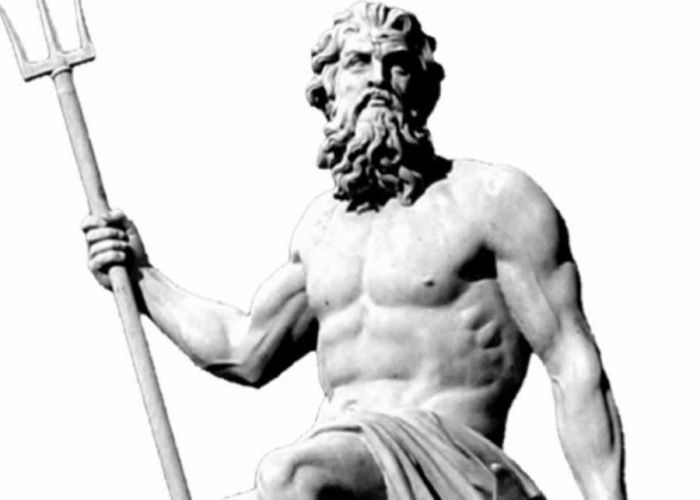
In most Greek myths, Poseidon is the god of land and sea, rivers, springs, and drinking water. Son of Saturn and Rhea and brother of Zeus, he sometimes lived on Olympus and sometimes in his palace in the depths of the sea along with his wife, the Nereid Amphitrite. He was the father of Theseus but also of Procrustes and Skiron and several giants.
As the god of the sea, Poseidon traveled with his golden chariot on the waves, which opened happily in his passage while dolphins played around him. With his trident, he could both create storms and calm the water.
He was considered the protector of sailors and fishermen. He was also considered responsible for geological phenomena such as earthquakes. For that reason, he was offered sacrifices and invocations for the stability of the land and the safety of buildings, while he was also honored with horse racing.
His symbols were the trident, the fish -usually tuna- and, more rarely, the horse or the bull.
Demeter
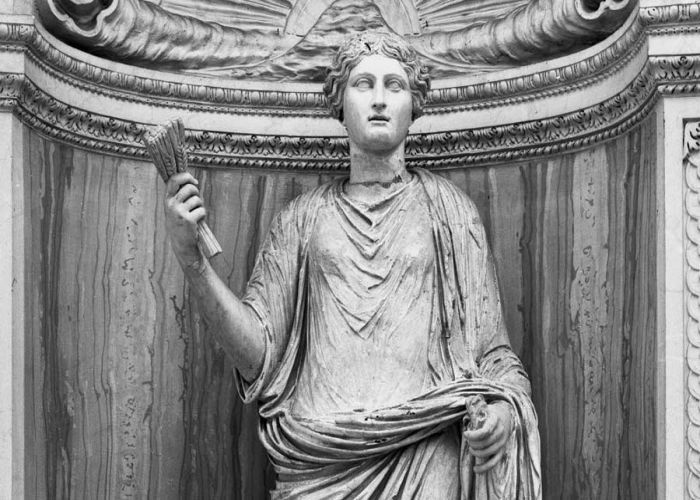
Demeter, in Greek mythology, was the ideal anthropomorphic deity of cultivation, ie, agriculture, but also of free vegetation, soil, and its fertility, the consequence of which was to be considered the protector of marriage and motherhood of people.
Demeter was the daughter of Saturn and Rhea. Sister of Hera, Hestia, Zeus and Poseidon. Her birth followed the same fate as her siblings.
Saturn swallowed his children as soon as they were born for fear of taking his throne. Rhea, no longer able to bear to lose her children, helped the youngest, Zeus, dethrone Saturn with a trick and free his brothers from their father's womb.
Demeter and her daughter Persephone were the main characters in the Eleusinian mysteries and were probably deities worshiped before the twelve gods of Olympus.
In many cases, the two deities are confused or considered a goddess with two faces. The abduction of Persephone by Pluto, the god of Hades, resulted in the withering of Demeter. She left Olympus and began to wander in black among the people looking for Persephone. Her youth and beauty were replaced by gray hair and mourning.
Ares
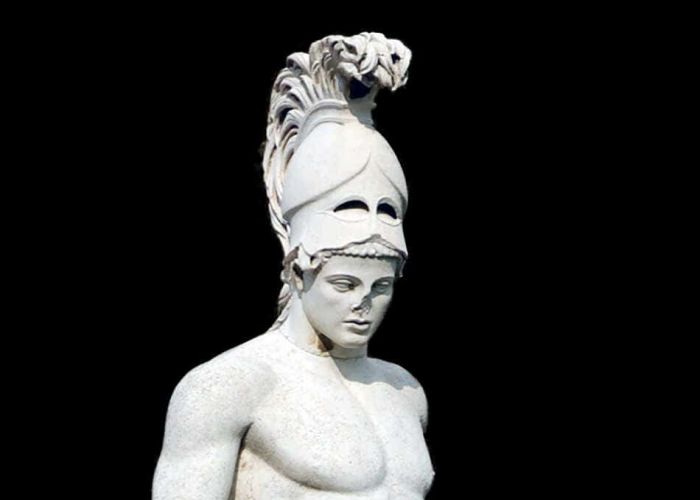
Ares was the Greek god of war, the son of Zeus and Hera. Due to its particularly belligerent nature, several 19th-century writers unjustifiably claimed him to be a foreign god, as they believed that the Greek imagination could not have created such a savage god.
In the myths, Ares appears warlike and provocative and represents the impulsive nature of war. The Greeks were ambivalent about Ares: although he possessed the natural prowess necessary for success in war, he was a dangerous force.
Overwhelming, insatiable in battle, destructive, and man-butcher. In Homer’s Iliad, his father Zeus tells him that he is the most hated god to him.
Moreover, his value as a god of war was in doubt: during the Trojan War, Ares was on the side of the losers, while Athena, often depicted in Greek art as the holder of Victory in her hand, favored the triumphant Greeks.
Ares plays a relatively limited role in Greek mythology as represented in literary narrative, although his many love affairs and abundant descendants are mentioned.
When Ares does not appear in myths, he usually faces humiliation. He is known as the lover of Aphrodite, the goddess of love, who was married to Hephaestus, the god of handicrafts.
Hephaestus
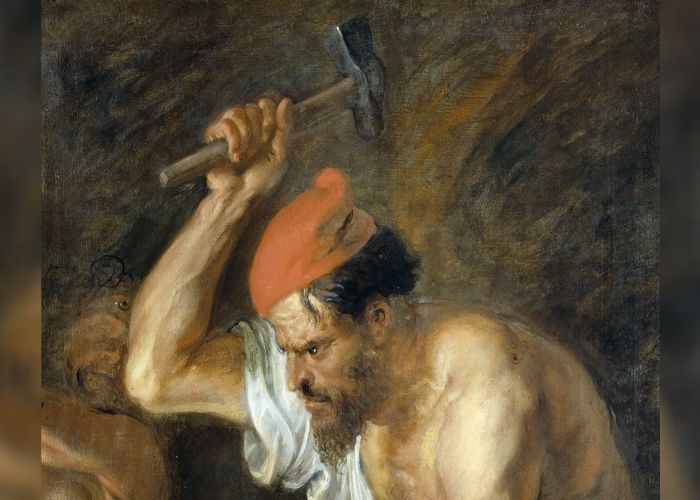
Hephaestus was the god of fire of heaven and earth and any process or art with it, such as coppersmithing and especially metallurgy.
According to Homer's Iliad, he was the son of Zeus and Hera. However, Hesiod in Theogony presents him not as the fruit of love but as the result of the quarrel between Zeus and Hera, allegedly born of Hera with parthenogenesis.
Hephaestus was the flourishing anthropomorphic deity of the natural power of fire in all its forms and uses, from lightning in the sky to a volcano on earth, but also as an inner human flame of inspiration and creation.
He is the youngest of the gods. According to general descriptions, he is ugly and deformed, so much so that his own mother, Hera, threw him from Olympus out of shame.
The baby god fell into the sea, where he was collected by Thetis and Evrynomi, who raised him for nine years. As soon as he grew up, the god immediately set up his first blacksmith shop at the bottom of the Aegean, forging beautiful objects for these two deities.
Dionysus
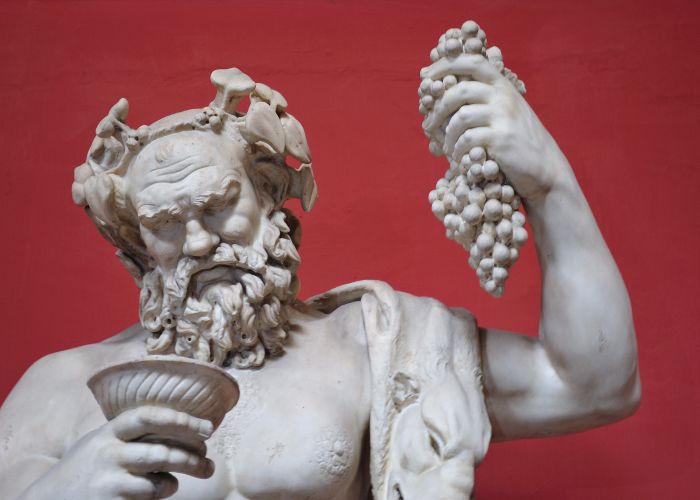
Dionysus belongs to the minor but important deities of the ancient Greek gods, as his worship significantly influenced the religious events of Greece.
Although he is often considered not an Olympian god, already from the 6th BC., he is represented together with the Olympians. Sometimes he is depicted sitting on the right of his father on the Olympic clifftops.
Dionysus, as a mythological entity, 'is neither a child nor a man, but an eternal teenager, occupying a position between the two.'
In this form, he represents the 'spirit of energy and transformative power of the game' full of cunning, deception, and strategies that indicate divine wisdom, present in almost all the mythologies of the world. Dionysus is also very much associated with fulfilled love.
Apollo
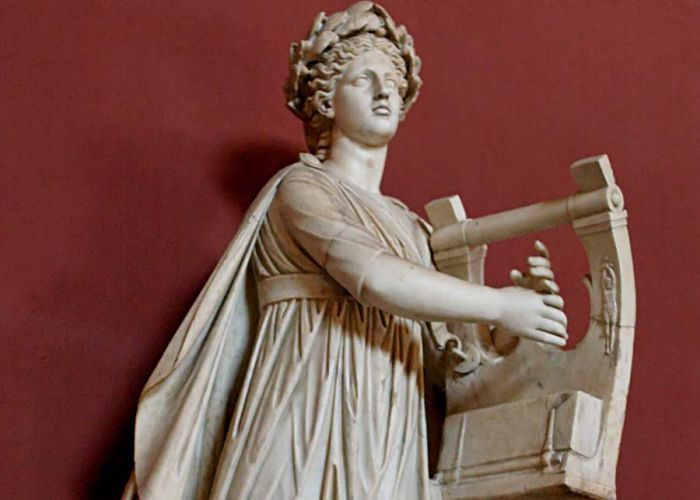
Apollo was one of the 12 gods of Olympus, the most important after Zeus. We have no clear indications of his origin.
According to the prevailing opinion, his worship entered Greece from the East. Other theories carry the Dorians as bearers of his worship but also as his place of appearance, Crete, through which his worship was transmitted to Asia Minor.
The most common Greek myth about his birth states that it took place on the island of Ortygia -today's Delos- from Leto, who was the wife of Zeus before Hera.
Due to the great jealousy of Hera for Leto, no place accepted her to give birth except Ortygia. It was an island that until then sailed free in the waves, and so it was difficult for Hera to detect the location to which Leto had taken refuge.
Later, Zeus stabilized the island in order for Apollo to be born. The labor pains lasted for nine days and nine nights. Artemis was born first, and then Apollo followed. According to other theories, the birthplace of Apollo was not Delos but Crete.
Artemis
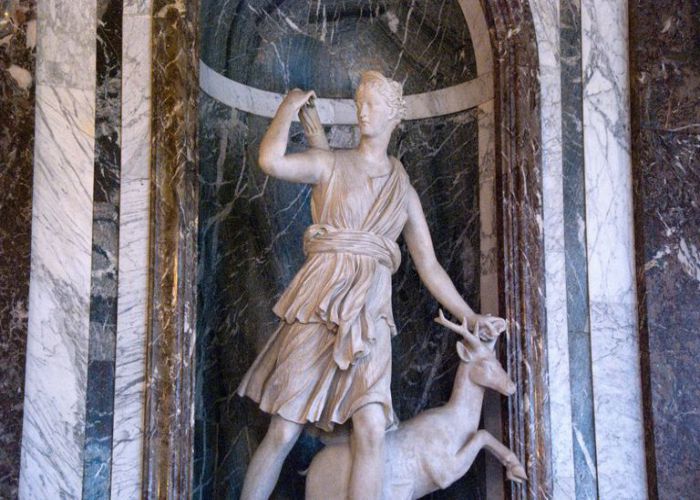
Artemis is one of the oldest and most interesting gods of ancient Greece. Daughter of Zeus and Leto, twin sister of Apollo, queen of mountains and forests, goddess of hunting, and protector of small children and animals.
Hestia, Athena, and Artemis were the only goddesses over whom Aphrodite had no power. The birth of the idiosyncratic goddess is placed on the island of Ortygia, as mentioned above.
From the very first hours of her birth, Artemis started to take initiative. Although a newborn baby, she helped her exhausted mother to give birth to her second child, Apollo and thus became the goddess of childbirth. Beautiful and brilliant, Artemis had won the appreciation of the other gods from a very early age.
From the age of three, she had specific requirements regarding her clothing, equipment, and following in her favorite pastime, hunting.
She was a child who knew what she wanted and was very adamant. Zeus admired her for her perseverance, and due to her ingenuity, he nurtured a great deal of love for her, catering to all her desires.
One of the first things that Artemis asked for as a gift from her father was eternal purity and virginity. Faithful and steadfast in everything she asked for and committed to, the virgin goddess never tarnished either her morals or her character.
Dedicated to hunting and nature, she was indifferent to the joys of marriage and the pleasures of love. Artemis was a ruthless goddess who almost never forgave.
Her deadly arrows constantly targeted mortals, gods, and heroes who overlooked her existence or neglected her principles and worship. One of the main features of Artemis was her universal dominance in nature. symbols of Artemis were many and varied, from animals and plants to weapons.
Aphrodite
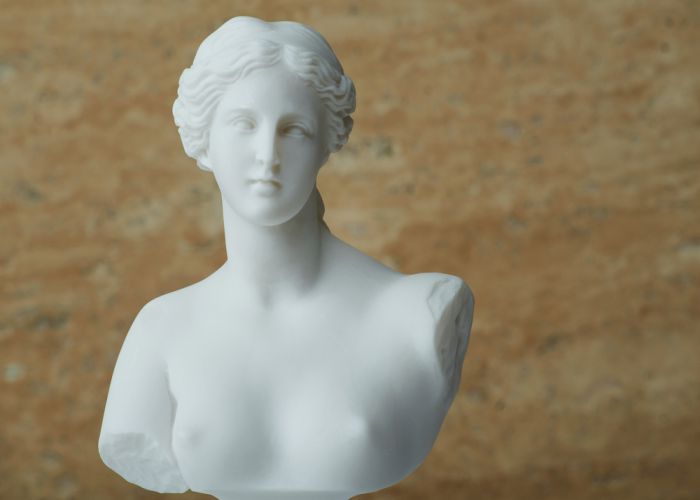
According to Greek mythology and religion, Aphrodite is the goddess of love, beauty, sexuality, pleasure, and procreation. As with many Greek deities, there is more than one myth about her origin. According to Hesiod's Theogony, she was born when Saturn cut off the genitals of his father, Uranus, and threw them into the sea.
From the foam came the goddess. According to Homer’s Iliad, she is the daughter of Zeus and Dionysus. Although extradited women considered Aphrodite, their patron saint, her public worship was serious, solemn, and unpretentious.
Because of her beauty, the other gods feared that competing with each other to win her favor would lead to war. Zeus, therefore, arranged her marriage to Hephaestus, who, because of his ugliness and deformity, was not perceived as a threat. Aphrodite, however, had many lovers, both gods and mortals.
She played an important role in the myth of Eros and Psyche, while she caused the birth of Adonis, who later became her lover. She is considered the mother of many even smaller deities and entities. In the Trojan War, which she largely ignited helping Paris kidnap Helen of Troy, the goddess sided with the Trojans.
Sacred beings of the goddess were myrtle, pigeons, sparrows, horses, and swans. Aphrodite is also known as Kythera and Kyprida from her two main places of worship, Kythera and Cyprus, which claimed to be her birthplace.
Thanks to the legend of her emergence from the sea, Aphrodite was widely worshiped as the protector of sailors. Due to her connection with the god Ares, she was paradoxically worshiped as a war deity in Sparta.
Athena
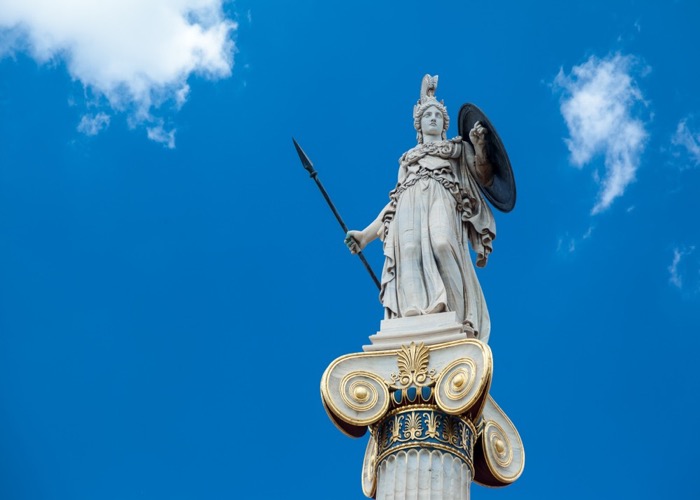
Athena was the goddess of wisdom, strategy, and war. Athena often helped heroes. She was always presented armed, never as a child, always a virgin.
The Parthenon in Athens is the most famous temple dedicated to her. She never had a partner or lover, although once, Hephaestus tried unsuccessfully. Athena was the most beloved daughter of Zeus.
Her mother was Metis, the first wife of Zeus. Zeus, after a prophecy, learned that Metis would give birth to a child who would overthrow their father from power, so he swallowed her while she was pregnant in Athena. Later, Zeus began to suffer from headaches and called on Hephaestus to help him.
Then Hephaestus, with a big hammer, hit the head of Zeus, and Athena was thrown into armor, wearing a helmet and holding a shield. Seeing Zeus, she threw them at his feet, a sign of his recognition as the supreme god.
Hermes

Hermes was the messenger of the gods in Greek mythology. He also served as a psycho-transmitter; that is, he led the souls of the dead to Hades, but he was also a protector of thieves, gambling, and trade.
According to the prevailing myth, Herme's father was Zeus, and his mother was Maya, one of the Pleiades, the daughters of Atlas, the giant who held the sky on his back.
He is perhaps the most likable god of the Olympians, as he initially combined the human very strongly with the divine elements, but also because he was considered essentially the first teacher of the human race.
He taught the letters and sciences to humanity, taught the use of the intellect, and in fact, there are myths that attribute to him the transmission of the knowledge of fire to people.
At the same time, he is the protector of trade, sacrificial ceremonies, and magic. He represents in an almost archetypal way the speed, flexibility, the variability, but also the deceptive paths that the mind sometimes follows, as it is easily deceived and makes mistakes. He also has a shady and more human side to him, as he is exceptional in fraud, lying, and stealing.
Other gods of Olympus
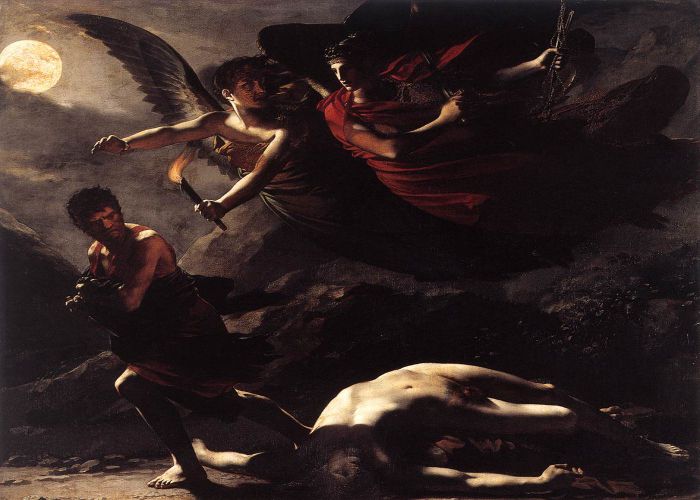
Apart from the famous 12, there were other gods in Greek mythology that used to frequent Mount Olympus.
Hecate: Goddess of magic. He helped Dimitra find her daughter. The Greeks believed that when dogs suddenly barked at night, Hecate passed between them.
Aeolus: God of the winds.
Themis: Goddess of justice. She was the daughter of Gaia and Uranus. She had married Zeus and acquired from the Moirai -Klotho, Lachesis, and Atropos- and the Horae. She is always depicted blindfolded, holding a sword in her left hand and a scale in her right.
Kyveli: Goddess of fertility.
Eris: Goddess of jealousy and discord. She threw the golden apple at the wedding of Thetis and Peleus because they did not invite her.
Nemesis: Goddess of Justice, the Divine Judgment. She kept human affairs in balance by setting limits, regulating their selfishness, and imposing punishments.
Nyx: goddess of the night. Nyx was a sovereign, primordial and cosmogenic entity, respected and feared even by the god Zeus himself.
Other deities and nymphs
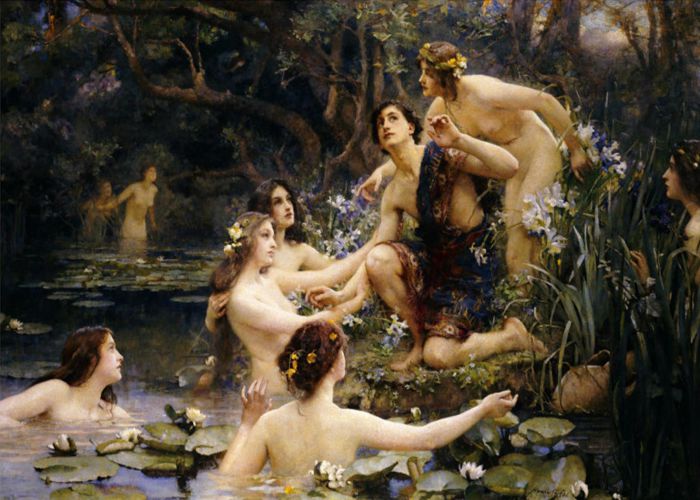
In addition to the twelve gods, Greek mythology included many other deities, while other forms of divine origin were worshiped, such as the Nymphs, the Nereids, the Satyrs, and the Erinyes.
The Nymphs were female figures of divine origin, young in age, living in the wild, wandering in the mountains, and accompanying Artemis playing with her. They were all beautiful.
According to the Archaic Greek tradition, there were 3 types of Nymphs:
1) Naiades, ie, Nymphs of rivers, springs, and fountains, which are the most famous and from which the stories about the Fairies have derived.
2) Orestiades, who lived in the mountains around the springs.
3) Dryades or Amadryades, ie, Nymphs of solitary trees and meadows, which were identified with Melies. Melies were the first Nymphs created from the blood of Uranus when his son Chronos cut off his genitals, and it dripped on the earth. The Naiads lived in caves. Inside their caves, they flirted with Hermes or the Silinos. The trees that were dedicated to Nymphs and were considered their home, mortals were forbidden to touch them with an ax.
Here are some of the most important Nymphs.
Ivi: the deity of youth and vitality. Daughter of Hera and Zeus. She supplied Nectar and Ambrosia at the banquets of the gods of Olympus. When Hercules performed his twelve deeds and was accepted on Olympus as an equal god, Zeus, and Hera married him to Ivi so that they could live and rejoice together forever, aged and untouched by all evil. Her symbol is the apple.
Maia: Mother of the god Hermes. One of the seven daughters of Atlanta and Oceanida-Nymph Pleion. From her came the name of the month of May.
Filyra: the deity of recovery, beautiful perfumes, writing, and elegance. Mother of the wise Centaur Chiron. Uranus fell in love with FiFilyralira for her beauty and met her in the form of a horse to avoid the attention of his wife, Rhea. She gave her name to the plant of the same name.
Where did the Greek gods live?
As their name suggests, the gods used to live in the gorges of Mount Olympus, where their palaces are located. The Pantheon -today's Mytikas- was their meeting point, while the throne of Zeus -today's Stefani- used to host the leader of the gods, Zeus, exclusively.
Olympus is the second-highest mountain in the Balkans and dominates the borders of Macedonia and Thessaly with high peaks and deep ravines, while in 1938 it was declared a National Park.
Is Greek mythology and Roman mythology the same?
While one cannot deny the similarities between the two, as they share a number of gods and goddesses in their mythological scenes, Greek and Roman mythology are completely different from one another. So, in short, no.
The Role of Mount Olympus in the Titanomachy

Gaia -Earth- was born from chaos and from Gaia, the mountains, the sea, and then Uranus with the sun, the moon, and the stars. Then, Uranus and Gaia came together and gave birth to the Titans.
But Uranus was afraid that one of his children would take his throne. That is why he encaptured everyone in the depths of the Earth. However, his son, Saturn, the strongest of the Titans, defeated him, and he became the ruler of the whole world. He married Rhea, and they gave birth to three goddesses and three goddesses: Hera, Hestia, Demeter, Pluto, Poseidon, and Zeus.
But Saturn was also afraid that one of his children would take his throne. That's why when they were born, he swallowed them. Desperate, Rhea went and gave birth to her sixth child, Zeus, in a cave on a mountain in Crete. He hid the child there and gave Saturn to swallow a disguised stone.
When Zeus grew up, he fought Saturn and forced him to take out his five swallowed brothers. A war began between the Titans and the gods. The war lasted 10 years. Zeus, with the help of three giants who each had 100 hands, won and became the ruler of the world. This battle is known as the Battle of the Titans.
After the Battle of Titans, the world was divided into three parts, between the three brothers, Zeus, Poseidon, and Hades or Pluto. Zeus took the sky, Poseidon the sea, and Hades the underworld. The Land and Mount Olympus were not given to anyone. Zeus was the most powerful of the gods, and so his brothers, sisters, and children took different positions on Olympus.
Who is the strongest Greek god?
The most powerful of all, Zeus was the god of the sky and the king of Mount Olympus.
Who was the most famous Greek god?
All of the gods of Olympus were extremely famous among even critical Greeks. However, Zeus, Athena, Aphrodite, and Poseidon were the most popular ones, sharing the biggest parts in mythical scenes. They were respected and feared the most and can be found in most Greek myths.
How did the Olympians die?
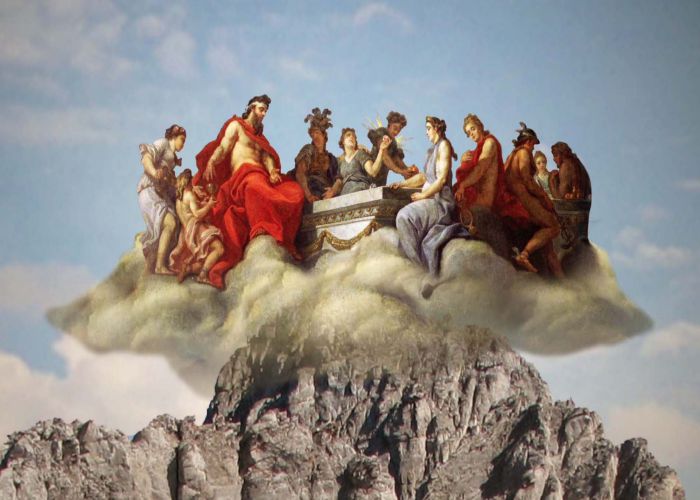
Oh, but they never did! With the advent of Christianity, the twelve Olympians lost their power. Through the preaching of Apostle Paul in Pnyx, the erroneous conception of the Greeks about their relationship with God got reconstructed since now something extremely important was "reported," which impressed the Athenians: God was not an image of man, but, on the contrary, the man was an image of God.
Regardless of the modern religions around the world, all you have to do to bring the Olympians back to life is close your eyes and imagine them standing on the top of mount Olympus.
Ancient Greek Religion played a major role in ancient Greece and continues to be important today in the cultural heritage of the Greeks as it shaped their mythology and the view and approach to their world.
Ancient civilizations developed greatly because of the Olympians. People began to build temples, statues, and murals in honor of the gods, some of which survive to this day. All these compose the Greek identity that has become famous across the world.
Greek Mythology Creatures
The creatures of Greek mythology were created entirely by the unbridled human imagination and usually combine with realistic elements of different existing creatures.
Following the intricate paths of Greek mythology, one encounters a large number of mythical creatures, who usually appear in supporting roles, but win the show with their eerie presence. Today we present a few of the idiosyncratic troupe of Greek mythology creatures in an effort to demonstrate their impressive diversity.
Minotaur
Minotaur was born when Poseidon decided to take revenge on Minos for his disrespect for not sacrificing a beautiful white bull for him. The god made Minos' wife, Pasiphae, come together with a bull, and so this terrible child was born, a man with a bull's head.
Minotaur spent his entire life imprisoned in Knossos Palace's Labyrinth, built by Minos, devouring 7 young men and 7 young women from Athens every year until Theseus exterminated him.
Centaur
Centaurs had the upper body of a man and the body of a horse and lived in Thessaly. One time. they had a bad idea to steal Hippodameia on the day of her marriage to Peirithos and to kidnap the other women of Lapithos who also lived in the area.
The battle was ambiguous, but Theseus judged the result by helping the Lapithes. This battle in ancient art symbolizes the conflict between civilization and barbarism, and that is why it was chosen as a theme in the metopes of the Parthenon.
Sirens
The Sirens were bird-shaped with a female head. They were sea creatures, and despite being uncommon in appearance, they were beautiful and had a charming voice.
However, they had the bad habit of enticing the sailors passing by their island with their songs and devouring them. When Odysseus passed by, warned by Circe, he closed the ears of his sailors with a candle, and he himself got tied to the mast to enjoy the beautiful song.
Medusa
Medusa had a horrible shape; instead of hair, she had snakes on her head and turned to stone anyone who looked at her. She was one of the three Mermaids - the others were Stheno and Evryali - daughters of Forki and Kito, who were sea deities.
Polydeuces, king of Serifos, once asked the hero Perseus to bring him Medusa's head, hoping that the young man would fall victim to her. But he managed, with the help of Athena, to behead her using his shield as a mirror.
The moment he cut off her head, the winged horse Pegasus and Chrysaor jumped out of her. Perseus offered Medusa's head to Athena, and she fastened it to the aegis on her chest.
Scylla
Scylla was also the daughter of Forki and Kito, once a beautiful nymph that Poseidon longed for. The jealous Amphitrite turned her into a monster, poisoning the water she bathed in. Skylla had a fish body, a female upper torso, and dog heads protruding from her chest.
In Homer's epic poems, Scylla and Charybdis guard a strait through which Odysseus must pass with his boat. Scylla devours alive six of his men, but the hero manages to pass unscathed.
Lernaean Hydra
Lernaean Hydra was the daughter of Typhoon and Echidna, a horrible aquatic monster with reptile features and many snakeheads. In fact, when one cut one, two others sprouted in its place. She lived in Lerna, Argolida, and spent her time torturing the world and guarding a gate to the Underworld until Hercules exterminated her.
Pegasus
Pegasus was a winged horse, the son of Poseidon and Medusa, from which he jumped when she lost her head. When he once went down to Corinth in the Pyrenees fountain to drink water, it was there he was captured and tamed by the hero Bellerophon, and together they performed many feats, such as the extermination of Chimera.
Chimera
Chimera was a three-headed creature: it had the body and head of a lion, a tail that ended in the head of a snake, and in the middle of its back came the neck and head of a chamois. Daughter of Typhoon and Echidna, fire came out of her mouth, according to Homer and Hesiod. Bellerophon was able to kill her because she was at a safe distance on Pegasus.
Cerberus
Cerberus was a dog with three heads and a snake tail. He was the terrible guard at the entrance of Hades that did not let the souls go out and the living to pass. The extermination of Cerberus is the last feat of Hercules, the most difficult, the one for which the hero was first initiated in the Eleusinian mysteries. Hercules went down to Hades and asked the permission of the ruler of the Underworld to bring Cerberus to Eurystheus, which he did without using weapons.
Titans
The Titans were descendants of primordial deities, descended from the Chaos that ruled the vast universe. The first twelve Titans were a tribe of powerful, giant gods. The elders were Gaia (Mother Earth), Erebus (Darkness and the Underworld), Tartarus (Abyss, under the Underworld), Eros (Birth - not to be confused with the god Eros, son of Aphrodite), Pontus (sea), and Ouranos (sky). The union of Gaia and Uranus gave birth to the Titans, and the children of the Titans became known as the Olympian gods. Later the Olympian gods, led by Zeus, opposed the Titans, whom they defeated in the famous Battle of Titans.
Greek Mythology for Kids
The fascinating tales of Greek Mythology are perfect for sparking the imagination of kids around the world. The aforementioned Percy Jackson books are a great way to introduce Greek Mythology to the younger generations. Additionally, a visit to the homeland of these traditional tales will further help kids grasp the age-old stories that follow Greece since ancient times.
If you plan on visiting Greece with kids, you can join one of our specially-designed kid-friendly tours that will show them around the most important archaeological sites. Along with the expert, licensed guides, they will have the opportunity to discover the myths and legends hidden under each and every rock.
If you want to discover the secrets of the world-renowned Acropolis rock, the Private Mythology Tour of Acropolis and Acropolis Museum is the one for you. For a kid-oriented exploration, opt for Acropolis for Families Tour.
To trace the steps of the kid-favorite fictional character, you can join the Acropolis & Acropolis Museum Tour Inspired By Percy Jackson, or the Percy Jackson Full-day Experience In Athens & Sounio.
Last but not least, if you want to explore Greek Mythology outside of Athens, you can choose between From Athens: Delphi Day Trip Inspired By Percy Jackson, or any of the Percy Jackson trips around Greece.
Final Thoughts
The previously mentioned are only a few of the many examples of how Greek mythology remains an integral part of everyday life. Since its appearance, many have discovered contemporary significance to its tales.
In case you want to dive into the wealth of Greek Mythology plan your own trip to Greece or check out one of our Greece tours.
If you plan on visiting Greece with kids, you can join one of our specially-designed kid-friendly tours showing them around the most important archaeological sites or pick among our Greece vacation packages.
Along with the expert, licensed guides, they will have the opportunity to discover the myths and legends hidden under each and every rock.
Frequently Asked Questions
Who were the Olympian Gods and Goddesses in Greek Mythology?
What is the Trojan War in Greek Mythology?
Who were the Titans in Greek Mythology?
What is the story of Persephone and the Underworld?





